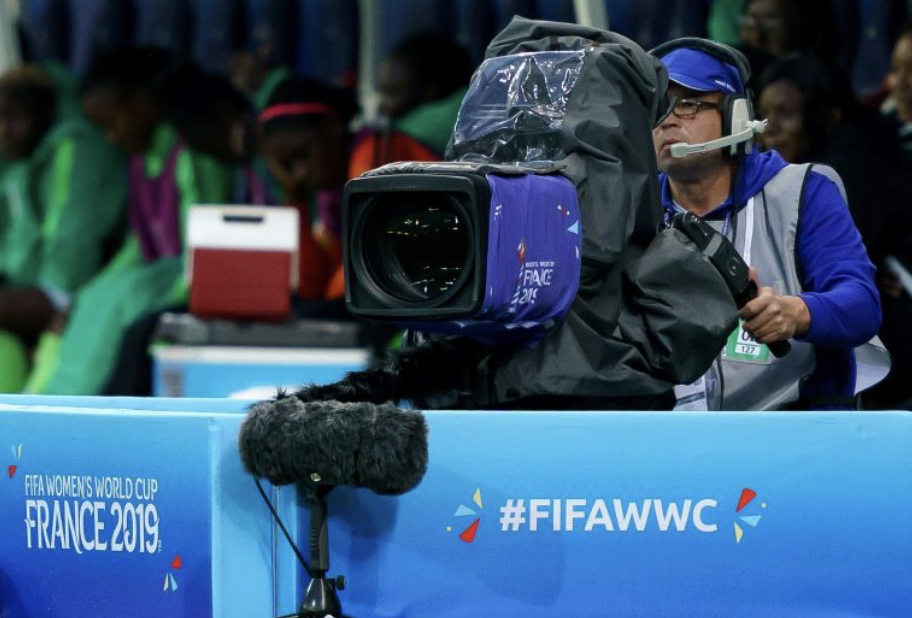May 2 – FIFA and its president Gianni Infantino are threatening a broadcast blackout of the Women’s World Cup in Europe’s ‘Big 5’ TV markets over “disappointing” broadcast offers.
With less than 100 days to go until the kick-off of this summer’s flagship women’s tournament in Australia and New Zealand, Infantino said the offers from broadcasters in Italy, Germany, France, the UK and Spain “are still very disappointing and simply not acceptable”.
“Should the offers continue not to be fair, we will be forced not to broadcast the FIFA Women’s World Cup into the ‘Big 5’ European countries.”
Infantino’s call comes at a time when women’s football is enjoying great popularity. To capitalise on the success of the 2019 Women’s World Cup in France, FIFA expanded the tournament format to 32 teams and set out to sell the broadcast rights separately – no longer in a package with the men’s World Cup.
The FIFA boss said revenue will be entirely reinvested in the women’s game and public broadcasters in particular had a duty to promote and invest in women’s sports.
He pointed at the discrepancy in broadcast rights between the men’s and women’s game, saying that “the viewing figures of the FIFA Women’s World Cup are 50-60% of the men’s FIFA World Cup, yet the broadcasters’ offers in the ‘Big 5’ European countries for the FIFA Women’s World Cup are 20 to 100 times lower than for the men’s FIFA World Cup. Finally, and concretely, whereas broadcasters pay $100-200 million for the men’s FIFA World Cup, they offer only $1-10 million for the FIFA Women’s World Cup. This is a slap in the face of all the great FIFA Women’s World Cup players and indeed of all women worldwide.”
A blackout in Europe’s major nations would however be a major setback for the tournament and negatively impact the commercial success of the competition.
It’s not the first time that Infantino has demanded broadcasters up their offers for the Women’s World Cup.
At the recent FIFA Congress in Kigali, where FIFA announced that they would raise the prize money for the tournament to $152 million, he also lamented the lack of substantial broadcast interest in Europe’s major markets.
But from European broadcasters the argument is that Infantino is being naïve and unrealistic in expecting broadcasters in Europe to fund the competition almost exclusively. For Europe the matches will be played in the middle of the night when even committed followers of international football will be sleeping and the ‘casual’ viewers broadcasters need to justify major acquisitions will just not be present.
In short any spend on an untested, expanded, Women’s World Cup that will require production cost commitment on top of the huge rights fees Infantino is demanding, is a significant risk.
The other, and perhaps more significant issue for FIFA, is that they went to broadcast market late with their TV pitch and a long time – in some cases years – after the major public broadcasters had committed their sports budgets, leaving only small amounts for non-essential broadcast properties. While Infantino is demanding “$100-200 million” offers to match the men’s competition, broadcasters, operating in already tightened markets, ask him where he thinks that money is sitting?
Similarly the statement that their offers are a “slap in the face” for women worldwide is, for many, offensive.
Their commitments to women’s football domestically and internationally in Europe have driven the growth of the club and national team game, often at the expense of other women’s sport and when the game was delivering miniscule ratings. Their cash investments in the women’s game in many cases have exceeded the investment in the women’s game by FIFA who currently sit on their biggest mountain of reserves since Infantino took over and expect to generate $15 billion from the next men’s World Cup in 2026.
If Infantino is not prepared to invest to test and build his own product in the commercial marketplace, why should they use their money to test his business case? Treating broadcasters as a free flowing ATM could prove to be a long-term major mistake by FIFA who tend to treat commercial ‘partners’ as though they have a right to their money and budgets.
The dilemma for FIFA and Infantino is that they need the major public broadcasters to build their tournament as they are the only TV companies with the broad-based national reach within their domestic countries.
There is also the issue for FIFA that in the UK, for example, the Women’s World Cup is now a ‘listed events’, meaning it must be offered to the main free-to-air terrestrial broadcasters on “fair and reasonable” terms. This excludes the pay TV channels and streaming services who would unlikely be prepared to pay FIFA’s demands for the same reason as the terrestrial channels in that the most of the rights and broadcast production will not deliver the revenues that support their business models.
FIFA could theoretically stream the matches on their own platform but that is also a risk, and would require a huge increase in production values on their current live output. It would also deliver no revenue to the event.
Contact the writer of this story at moc.l1713951545labto1713951545ofdlr1713951545owedi1713951545sni@i1713951545tnuk.1713951545ardni1713951545mas1713951545

